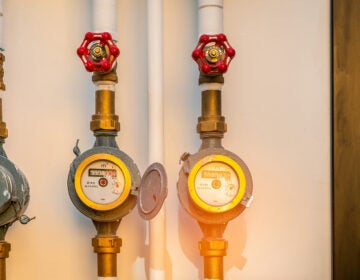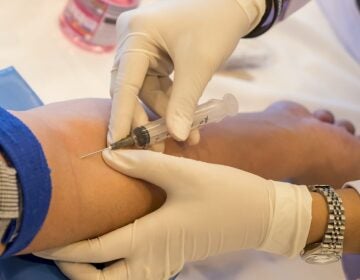Dale Mezzacappa: Philadelphia is ground zero for the national education crisis
Is there any hope for the School District of Philadelphia? That hot topic was the focus of discussion between Dale Mezzacappa, contributing editor for the Philadelphia Public School Notebook and East Mt. Airy Neighbors (EMAN). Mezzacappa was invited to speak at EMAN’s annual meeting Tuesday evening at the Mt. Airy Presbyterian Church.
Mezzacappa said a crisis in urban education is being felt nationwide and Philadelphia is the “ground zero for some of the extremes” on the issue.
Bottom line, the School District’s current budget problems are “the worst ever,” she stated.
Mezzacappa noted that while there are a lot of great teachers and innovation happening in Philadelphia’s public schools, the School District’s current state is that of “simple survival mode.” She told EMAN members that the School District almost constantly faces budget problems. Even if the School District were to receive the $94 million in additional funding that could be generated from passing the Actual Value Initiative (AVI), it would still face a $218 million deficit next year.
In most states, Mezzacappa explained, the average funding for public schools is split 50/50 with the state. In Pennsylvania, the state only chips in one third of the funds for public education. Former Governor Rendell’s plan to increase the state’s share (H.B. 1067, Act 61 of 2008), was shelved when Governor Corbett took office.
High poverty, low test scores
Mezzacappa said the biggest national debate concerning public education revolves around the impact of poverty on school achievement. Low achievement scores directly correlate with schools that have concentrated poverty in their population. Mezzacappa acknowledged that one answer to that issue is to eliminate that concentration in affected schools, however the solution remains politically unacceptable and not seen on wide scale. Industries have developed to produce the quick turn around of high poverty schools into higher achievers. However, this leads to a “drill and kill” approach of rote memorization which does not lead to long term success in comparison to schools with more well-rounded curriculums.
Are charter schools the solution?
Mezzacappa noted that there is a lot of distrust in the community about School Reform Commission (SRC) and its agenda. The SRC’s restructuring plan will close 40 schools next year and turn over some of the lowest performing schools to charter organizations with the idea that “creating a system of schools is the way to go in determining future of education,” she said. Currently 25 percent of Philadelphia’s publicly educated students attend charter schools. That number is expected to increase to 40 percent over the next five years. The SRC plans to close a total of 64 schools in five years, 40 of those closures will happen next year.
Many school buildings, such as Germantown and Martin Luther King High Schools are filled only to a third of their capacity. “Nobody wants to lose a neighborhood school” she noted, but said the high costs of heating and building maintenance make consolidation necessary.
Mezzacapa said a market driven school reform movement is attempting to address the idea that powerful teachers’ unions make public education more costly and hinder progress in performance standards. Most charter schools do not employ unionized teachers, instead their educators have year to year performance based contracts. Employee payroll generates the greatest costs incurred by the School District.
Mezzacappa not optimistic about what’s ahead
In the end, more money alone will not be the solution to any school district’s problems. Mezzacappa said that for the current leadership of the School District of Philadelphia, the fight for more money from the state is now secondary to changing how best to deliver education with the money they have.
Mezzacappa expressed doubts about whether this shift will bring forth the kind of public education needed to succeed in the current economy. “It’s not a good place for the District and for the future of what is likely to happen,” she stated.
WHYY is your source for fact-based, in-depth journalism and information. As a nonprofit organization, we rely on financial support from readers like you. Please give today.




